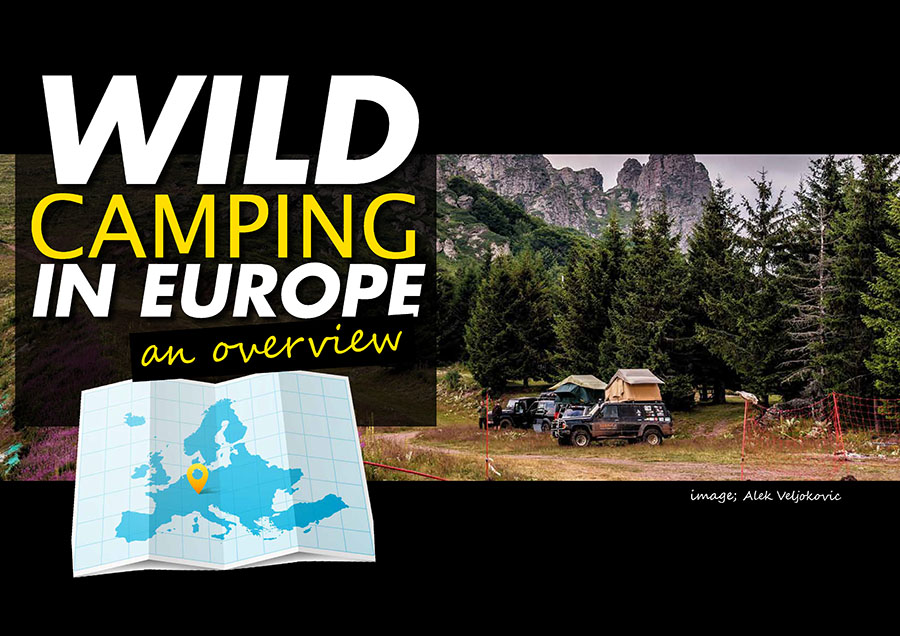 Planning a touring and camping vacation in Europe and not sure if/where you can wild camp? Look no further, in this article we explain the various rules, regulations and laws around wild camping across Europe. We love nothing more than heading off the beaten track to a remote area, setting up a wild camp and switching off from the outside world for a couple of days. Not only is it an inexpensive way to spend your well earned free time while enjoying the surrounding natural environment but science also tells us that it is also very good for us.
Planning a touring and camping vacation in Europe and not sure if/where you can wild camp? Look no further, in this article we explain the various rules, regulations and laws around wild camping across Europe. We love nothing more than heading off the beaten track to a remote area, setting up a wild camp and switching off from the outside world for a couple of days. Not only is it an inexpensive way to spend your well earned free time while enjoying the surrounding natural environment but science also tells us that it is also very good for us.
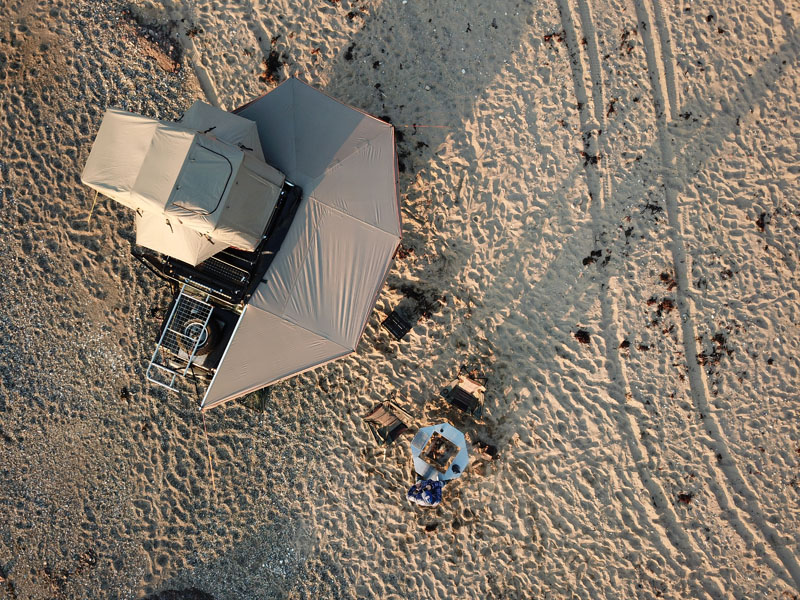
In modern times our daily lives have become more stressful with increased financial pressures, work deadlines, and now with the everyday use of modern technology like phones, ipads etc we never seem to be able to switch off. Well the good news is that there are ways to break from this cycle every now and then.
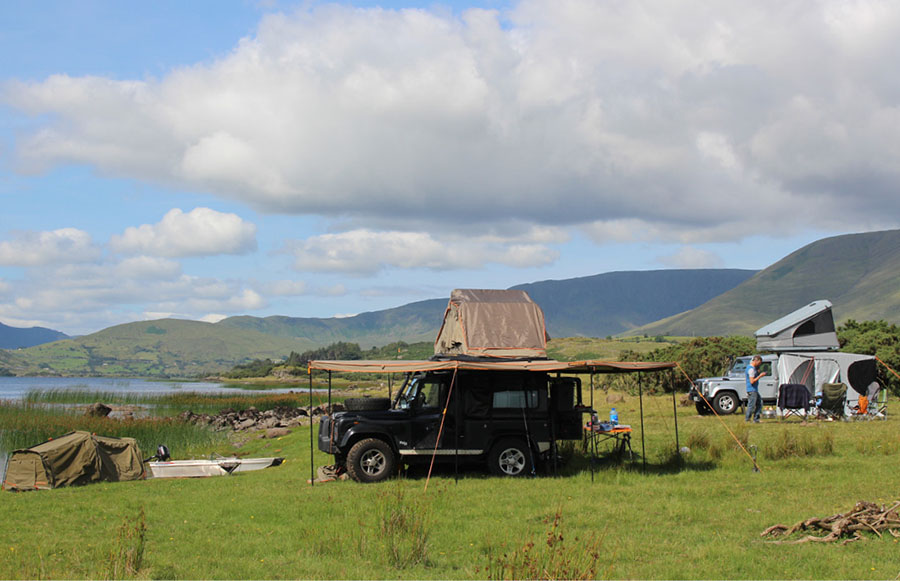 Now this does not mean we should all throw yoga mats into the back of our 4WD’ and head for Tibet, not that there’s anything wrong with that, it basically just requires us to make time every now and then to head off for a couple of days camping and leave our devices at home.
Now this does not mean we should all throw yoga mats into the back of our 4WD’ and head for Tibet, not that there’s anything wrong with that, it basically just requires us to make time every now and then to head off for a couple of days camping and leave our devices at home. 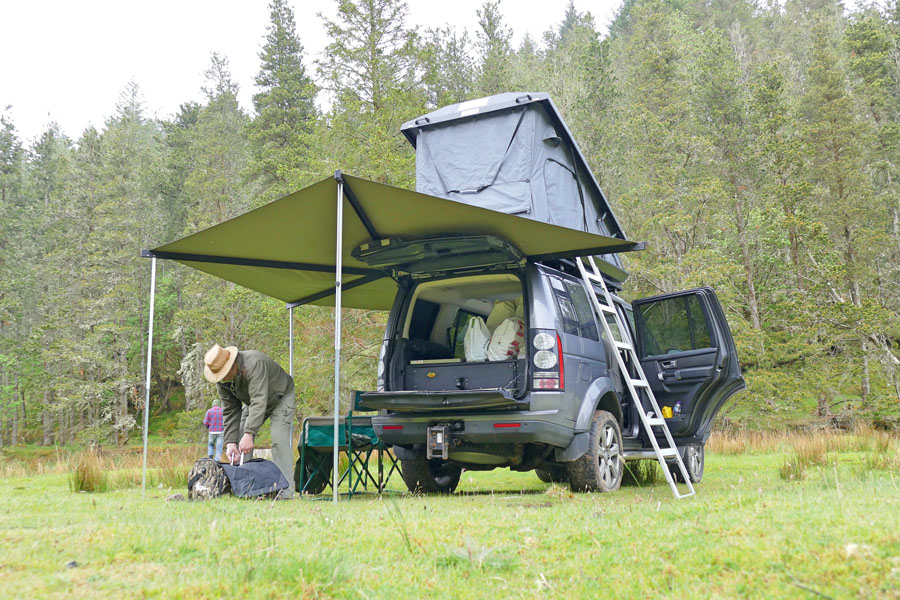 We also now know from the research that when we sleep outside, without electricity and artificial light our bodies begin to sync with the cycles of the sun and this effectively resets our body clocks to their natural circadian rhythm and releases the happy hormone melatonin which contributes to better health overall. Research also shows that artificial light and modern gadgets like phones, TV’s, IPADS etc are responsible for us staying up later and as a result interferes with the natural light-dark cycle that throughout the evolution of the human race began at sunrise and ended just after sunset.
We also now know from the research that when we sleep outside, without electricity and artificial light our bodies begin to sync with the cycles of the sun and this effectively resets our body clocks to their natural circadian rhythm and releases the happy hormone melatonin which contributes to better health overall. Research also shows that artificial light and modern gadgets like phones, TV’s, IPADS etc are responsible for us staying up later and as a result interferes with the natural light-dark cycle that throughout the evolution of the human race began at sunrise and ended just after sunset.
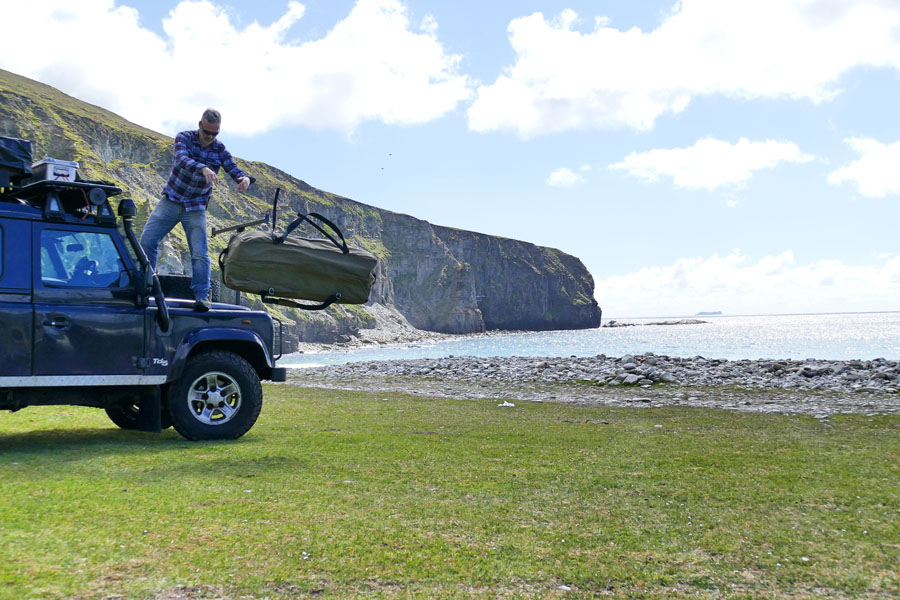 We are all familiar with those beaming lights from our phones as we check out what’s going on in the cyber world just before we fall asleep. It has been well documented that these late sleep patterns can lead to unwanted weight gain, mood problems, morning sleepiness and the list goes on.
We are all familiar with those beaming lights from our phones as we check out what’s going on in the cyber world just before we fall asleep. It has been well documented that these late sleep patterns can lead to unwanted weight gain, mood problems, morning sleepiness and the list goes on.
The team at TURAS don’t need much convincing to pack up our 4WD’s and head off for a few days camping leaving the laptops and other distractions behind and we can totally relate to some of these findings. It doesn’t take a genius to realise that a week wild camping makes you feel more connected with your surrounding environment. From a social perspective, wild camping with your family and friends is also a great way to reconnect and enjoy each others company, no fighting over the TV controls or staring into screens. Both the kids and adults love sitting around the fire toasting marshmallows and having good cheerful conversation with no distractions.
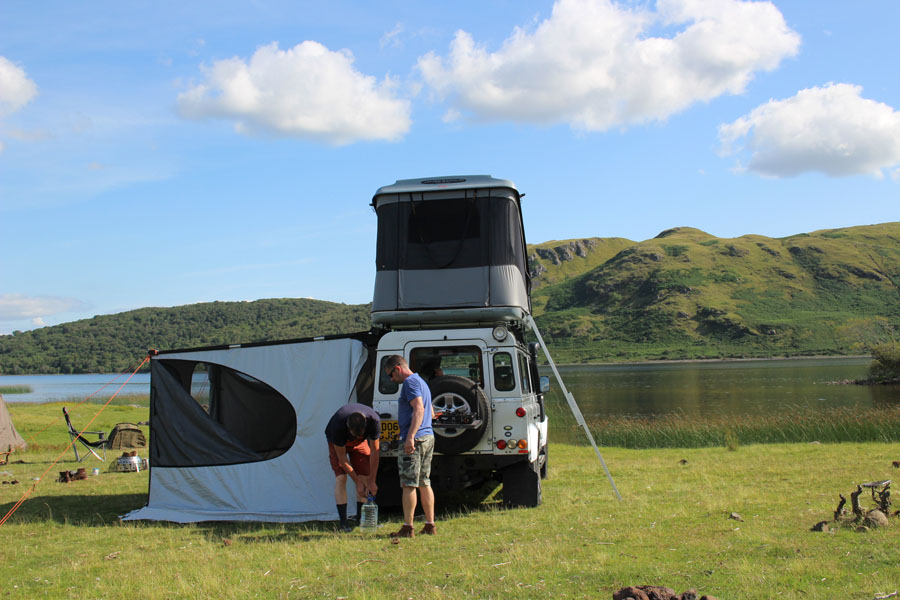
The TURAS team loves to find new wild camp locations
Unfortunately, we can’t always just pack up and camp anywhere we choose. Each country throughout Europe and beyond have different laws when it comes to wild camping and driving in remote areas and all of these laws should be respected. As pressure on our landscapes from recreational use continues to increase it is now as important as ever for us all to abide by the Leave No Place principles. It goes without saying that the vast majority of tourers and campers do respect their environment but unfortunately we will also have a minority who do not and give us all a bad name.
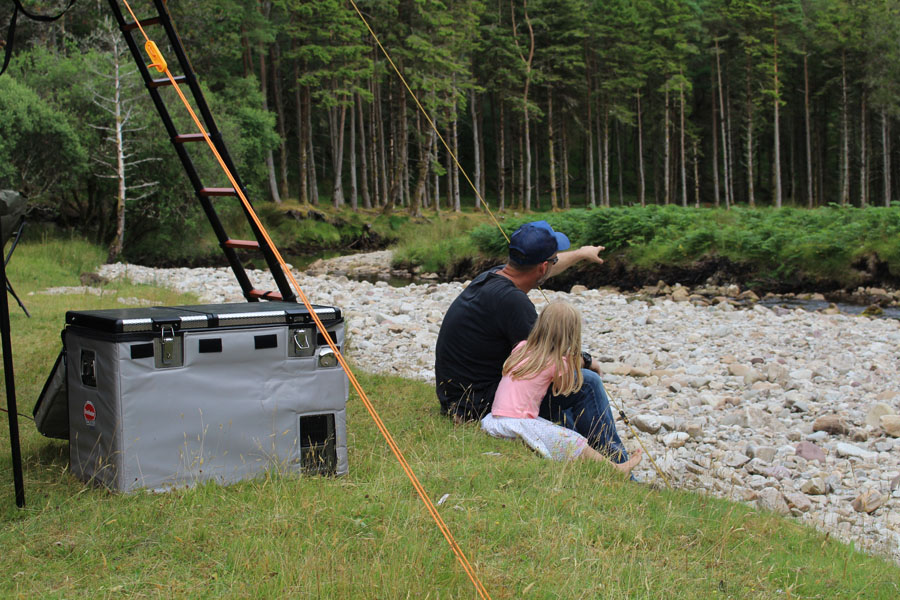
We should all try and make more time to get outdoors
So now that we have established that wild camping is good for us, the next question is which countries can we explore and wild camp legally in and enjoy this worthwhile and rejuvenating experience. Lets have a look at a few of them.
BRITISH ISLES
In the British Isles and the Republic of Ireland the laws around wild camping seem to vary in each jurisdiction with some being more liberal than others. Generally in England, Scotland and Wales all of the land is privately owned and you require permission to wild camp. In Scotland the well developed Outdoor Access Code provides detailed guidance on the responsibilities of those exercising access rights for non-motorised recreation.
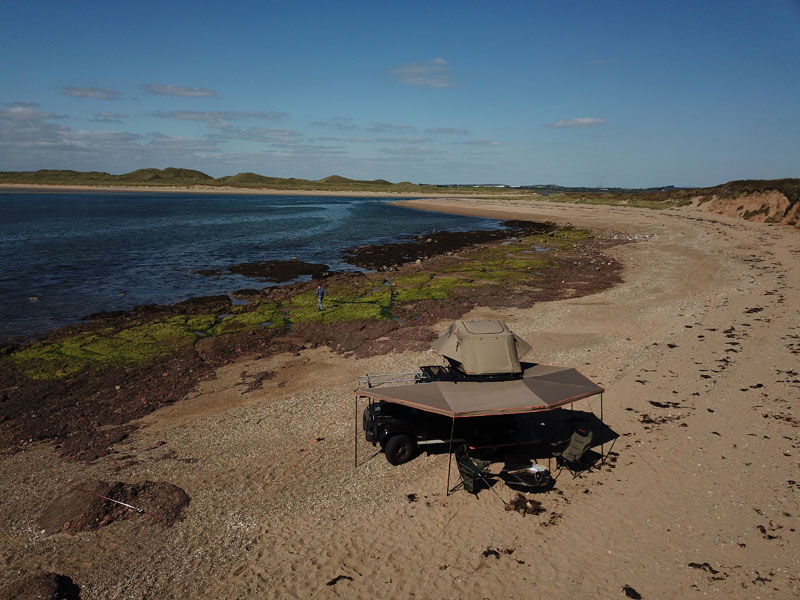
In England and Wales wild camping seems to be tolerated for hikers in many upland and remote areas, particularly in Snowdonia, the Dartmoor and the Lake District but the vast majority of the land including National Parks is privately owned and therefore generally requires permission from someone to wild camp. So unlike places like Australia the right to wild camp with your vehicle is somewhat limited.
IRELAND
In Ireland, wild camping is not strictly legal but does seem to be tolerated in many remote areas . Similar to Scotland Ireland is sparsely populated with plenty of remote areas to explore particularly along the west coast. The key consideration is to leave no trace and respect the areas that you camp in. If you want to camp on private land you should always ask for permission. Coillte the agency for managing forests in Ireland have a camping code in place which highlights the do’s and don’ts when accessing forests.
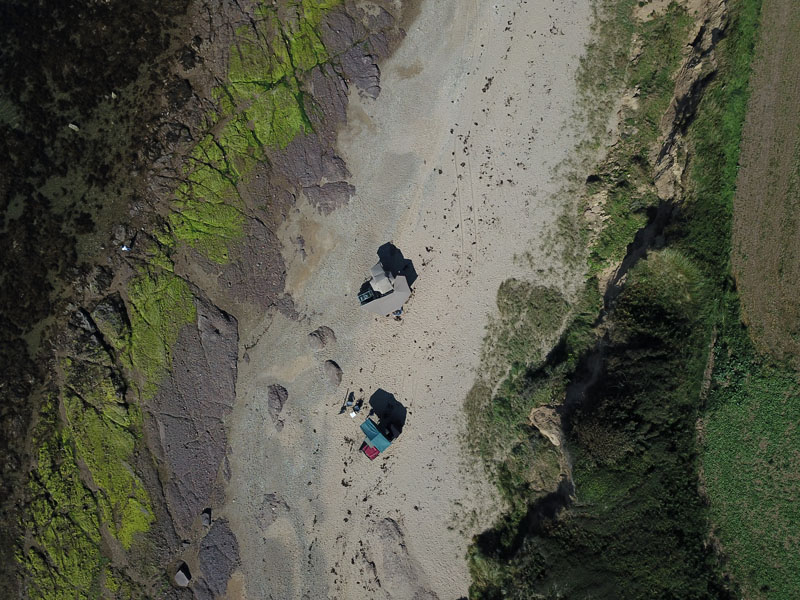
The Housing (miscellaneous provisions) Act grants powers to landowners to have the police remove unauthorised campers. but it is likely that such legislation will only be acted on to deal with campers who are, in effect, living in the forest and will not apply to casual or recreational campers..Camping is currently permitted in some of the Irish national parks provided you adhere to the Leave no Trace Codes.
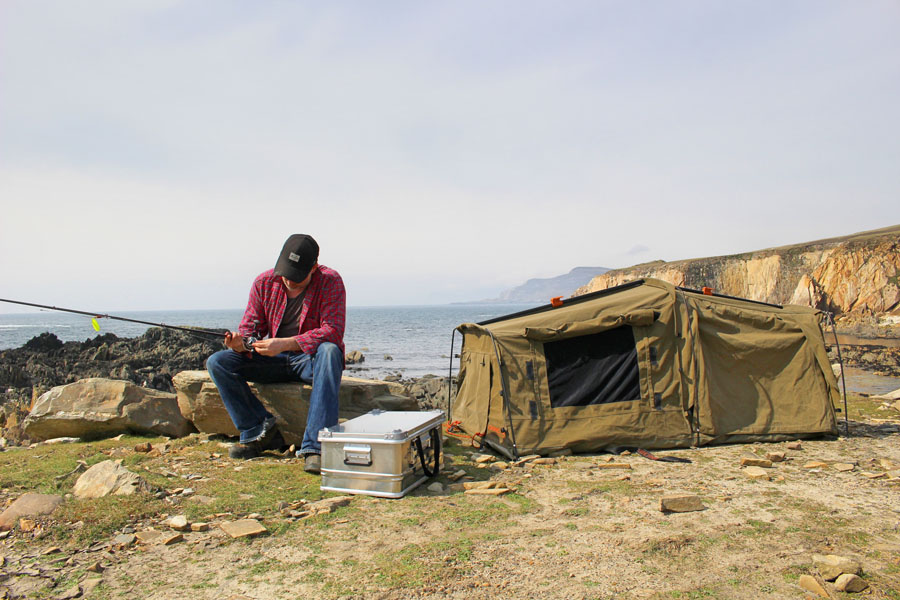
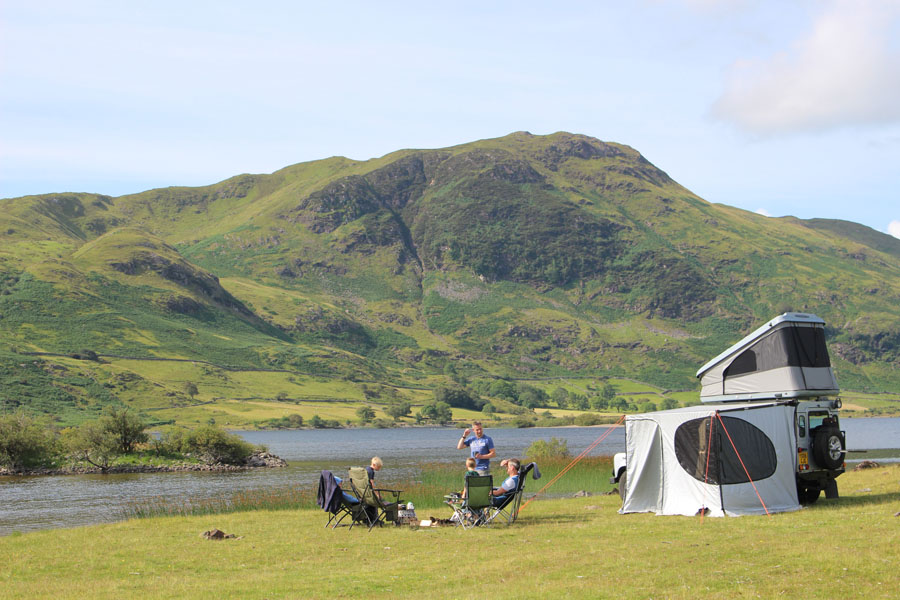
NORWAY
Norway lies between latitudes 57° and 81° N, and longitudes 4° and 32° E. Much of the country is dominated by mountainous terrain, with a great variety of natural features caused by glaciers during the last ice age. The west coast of southern Norway and the coast of northern Norway present some of the most visually impressive coastal sceneries in the world with National Geographic naming the Norwegian fjords as the world’s top tourist attraction. 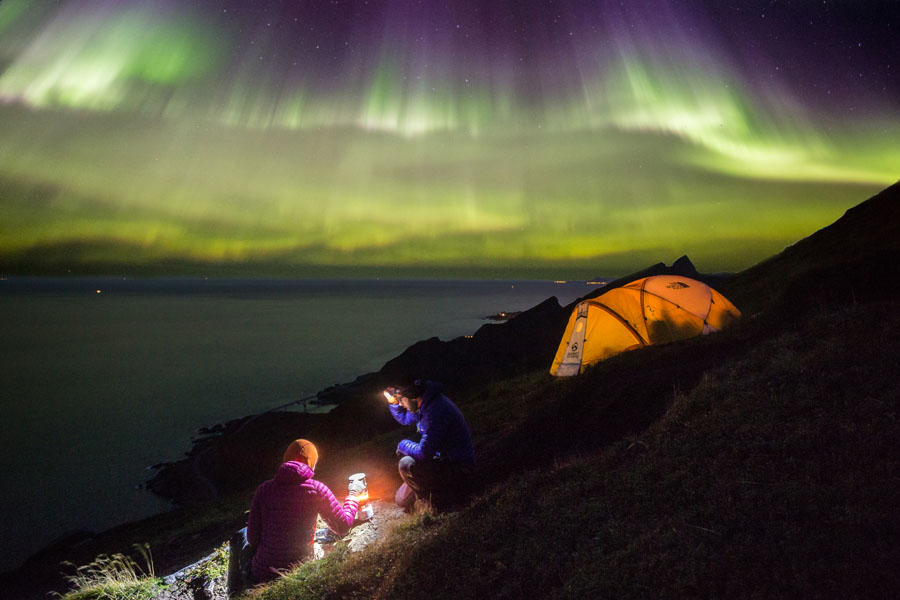 Norway has excellent laws when it comes to wild camping having one of the most liberal public-access laws in Europe allowing you to wild camp without any worries for a couple of days on uncultivated land. Wild camping in Norway is enshrined in the Allemannsretten which is basically every man or woman’s right of public access.
Norway has excellent laws when it comes to wild camping having one of the most liberal public-access laws in Europe allowing you to wild camp without any worries for a couple of days on uncultivated land. Wild camping in Norway is enshrined in the Allemannsretten which is basically every man or woman’s right of public access.
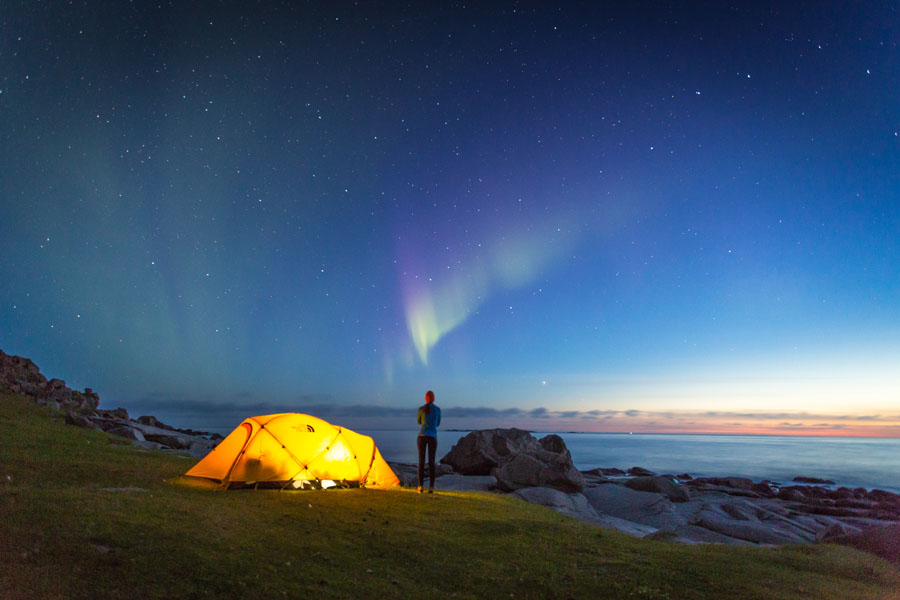
ICELAND
Iceland is situated at the confluence of the North Atlantic and Arctic Oceans is a country with a total area of 103,000 squared kilometres, with a population of only 320,000 people, which makes it the most sparsely populated Country in Europe. Most inhabitants live near the coastline with the interior containing mostly sand and lava fields, mountains, glaciers and volcanoes. There are around 170 registered campsites in Iceland, usually open from the beginning of June until late August or mid-September.
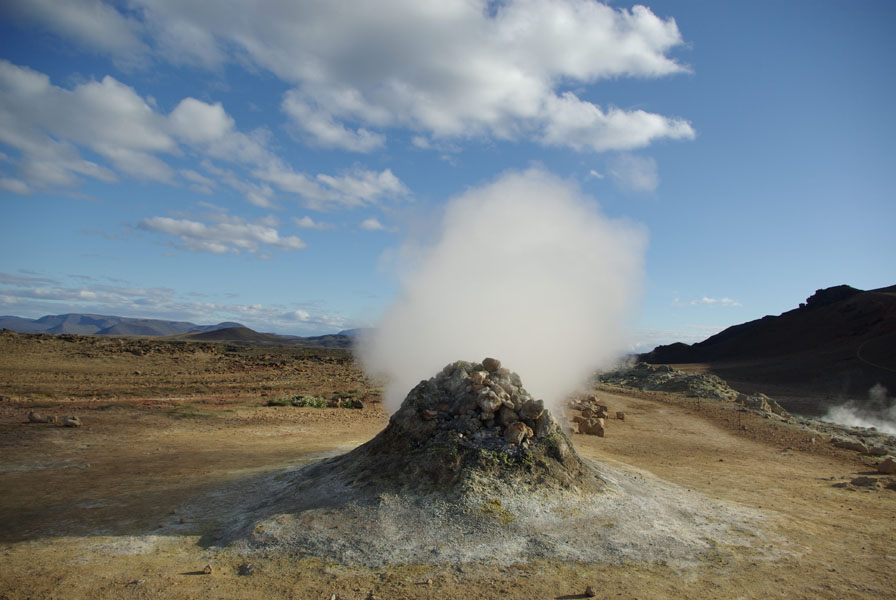
Many visitors come to Iceland to experience the pure, clean and untouched environment. Responsible camping allows you to enjoy Iceland in its purest form, and depends on campers respecting nature and minimizing their impact on the area they are camping in.
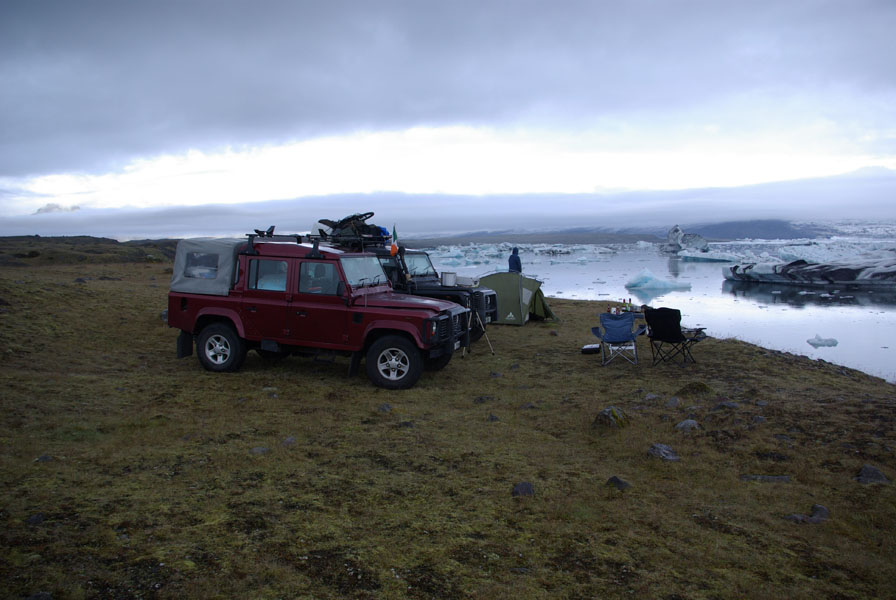
Wild camping in Iceland
Icelandic nature preservation law dictates where you are allowed to camp in Iceland if you find yourself away from registered campsites. In residential areas, you are allowed to pitch up to three camping tents in uncultivated land for one night only if there is no campsite in the area. If you wish to camp on cultivated land or near residential buildings, fenced off farmland, or such, you have to ask permission from a landowner or other beneficiary before you pitch up the camping tent.
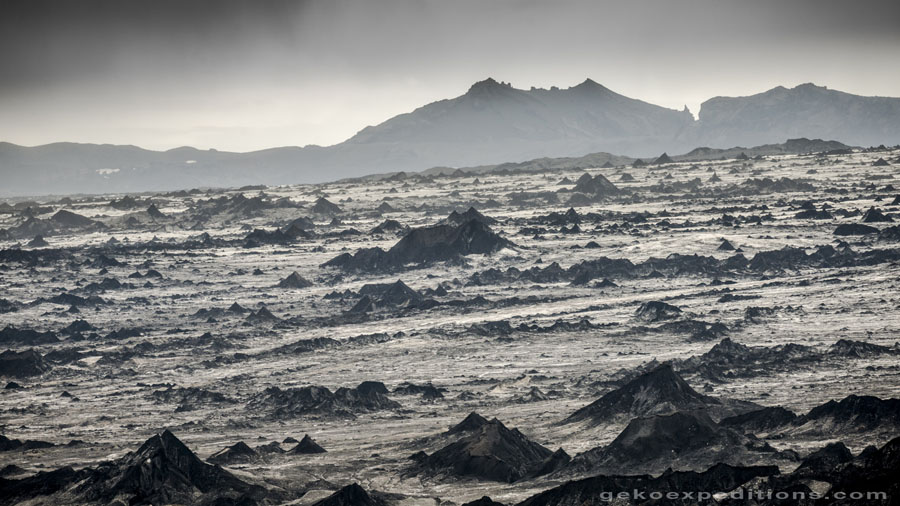 The same rule applies if you intend to stay longer than one night. You are not allowed to camp on farmland without permission.In the highlands, you have permission to pitch up camping tents. This applies only to a regular camping tent. Mobile campers must always seek permission from landowners or other beneficiaries before camping, whether in a residential area, on uncultivated land or in the highlands.
The same rule applies if you intend to stay longer than one night. You are not allowed to camp on farmland without permission.In the highlands, you have permission to pitch up camping tents. This applies only to a regular camping tent. Mobile campers must always seek permission from landowners or other beneficiaries before camping, whether in a residential area, on uncultivated land or in the highlands.
In general, wild camping is tolerated if you find yourself away from registered campsites, from the point of view of exploring with your 4WD you most follow the existing tracks.
BELGIUM
Wild camping is generally prohibited in Belgium if you pitch your tent in a designated area called a Bivak Zone. Bivak Zones are designated wild camping sites that offer basic facilities. You can pitch your tent and stay at these sites for a limited time. In the Flanders it is allowed to stay for a maximum of two days. There are approximately forty Bivak Zones in Belgium the basic comforts include water pumps, a wooden tent platform, a fire pit, though this is not the case for all bivak zones. Be sure to use the fire pits available.
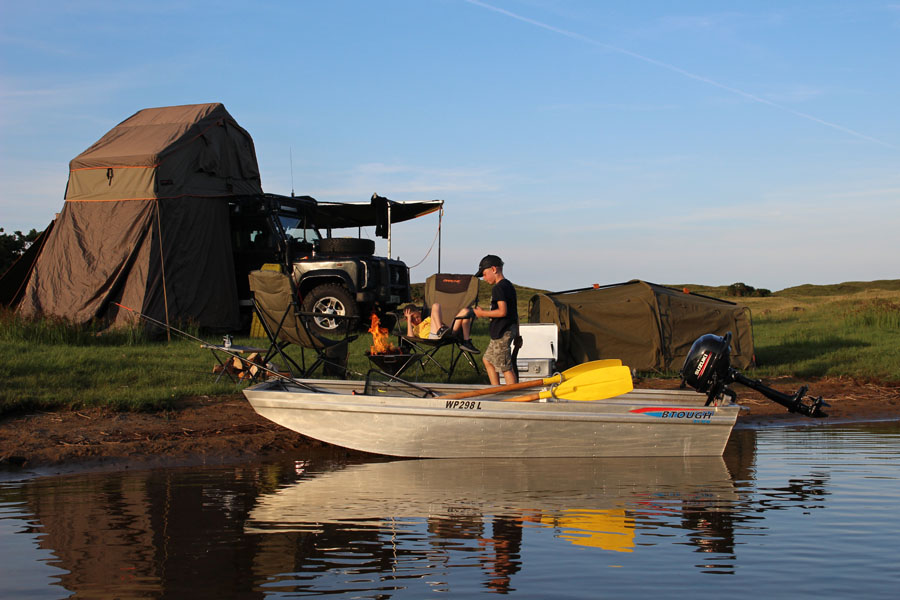
PORTUGAL
Portuguese legislation determines that overnight stays and camping outside the permitted places (camping and caravaning sites) is not permitted and is subject to the authorisation from the authorities and the land owners. Portugal has an extensive network of good quality campsites, many of them located in places of rare beauty where you can be in full communion with nature. So, if you don’t want to risk being awakened by the authorities and go home with a much lighter wallet, we recommend that you plan your trip in advance, stay only in legal campsites and choose the ones that best fit your itinerary.
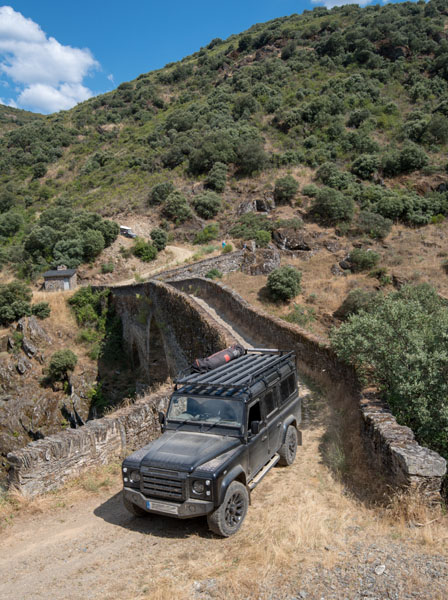
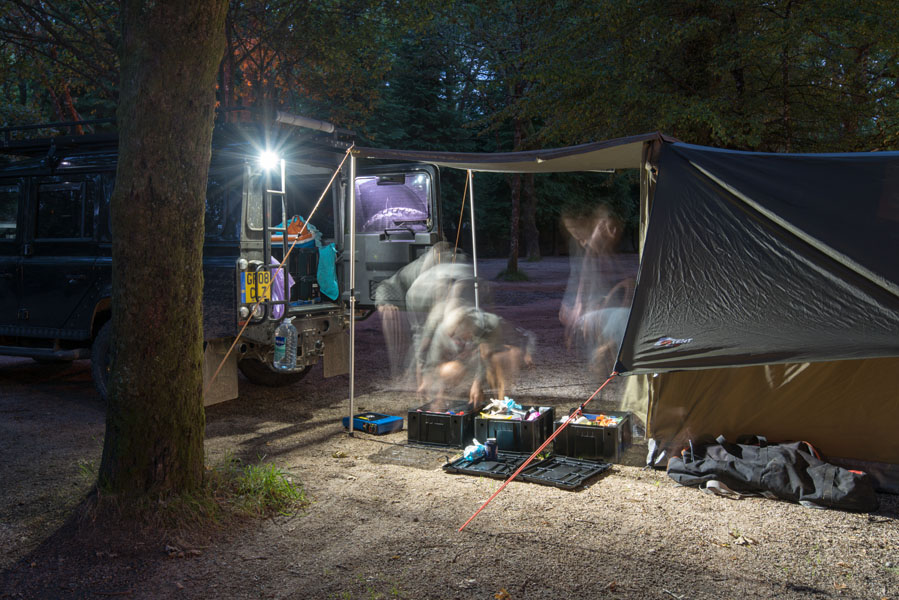
During the summer season, Portugal is historically affected by numerous forest fires. During the critical period that normally goes from June to September, the authorities will limit or even prohibit certain activities such as the circulation of vehicles, barbecues and picnics in rural and forest areas, depending on the level of risk.
In this case, the right thing is simply to avoid the forest areas, follow the indications from the authorities and take the preventive measures that are in your reach, such as not smoking or making fire. If during a trip to Portugal you feel like doing a barbecue outside the authorised places (campsites or picnic areas identified as such), be aware that this is subject to permission from the local authorities
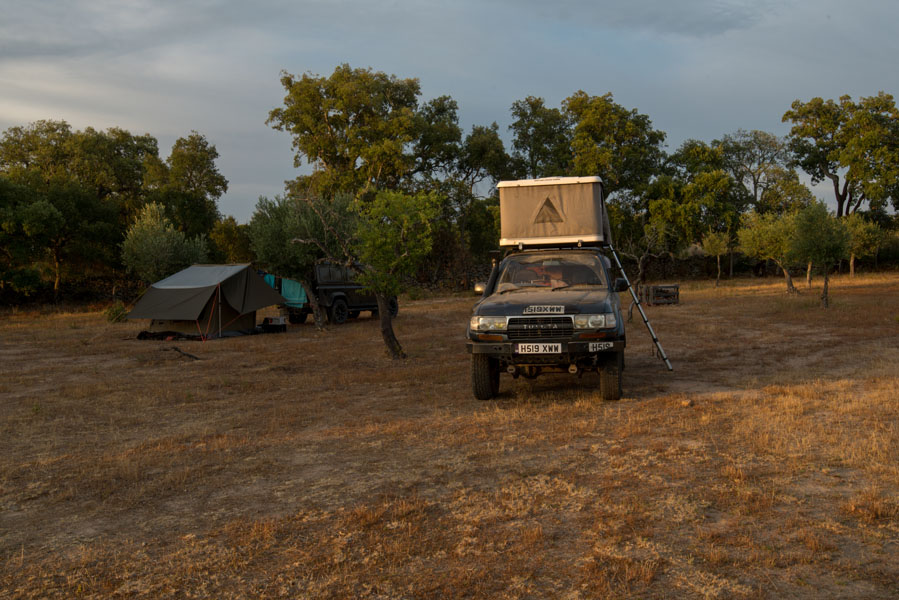
Portugal has plenty of registered campsites
Driving off-road (excluding organised tours or events) is generally permitted in public unpaved roads and lanes where the highway code is applicable. Access to or driving through private property is forbidden without permission from the owners Inside nature parks and other legally protected areas including Natura 2000 areas, driving off-road is subject to permits and permissions from the Institute of Nature Conservation and Forests (www.icnf.pt). Each protected area has its own regulation which sets the requirements for the authorisation of recreational activities, including driving off-road.Driving on beaches, sand dunes, cliffs and other protected areas along the coast is prohibited by law and is subject to heavy fines.
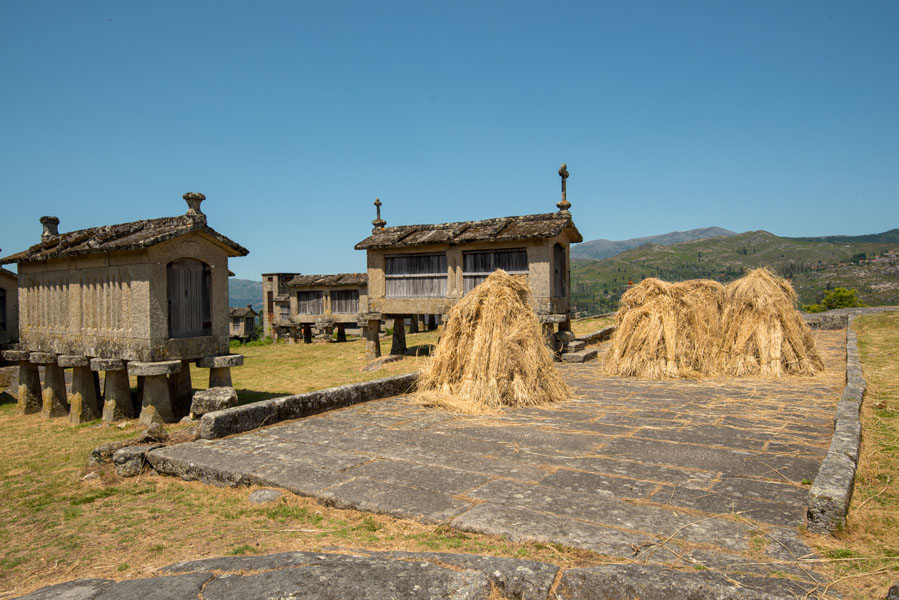
Portugal is waiting to be explored
For the regulations about off-road tours, wild camping and forest fires, I suggest you take a look at the very informative Dream Overland website http://www.dreamoverland.com/en/letra-da-lei
FRANCE
Wild camping translated as “le camping sauvage” is generally illegal in France under Article R111-33 and R111-34 but it is not all doom and gloom as this law also states that “These prohibitions are enforceable only if they have been made public by posting in town halls and by placing signs at the usual access points to the areas covered by these prohibitions’’. It is discouraged to wild camp along the coastline and in protected areas. Of course you can wild camp if you get permission so best advice is that if you are not sure to always ask for permission.
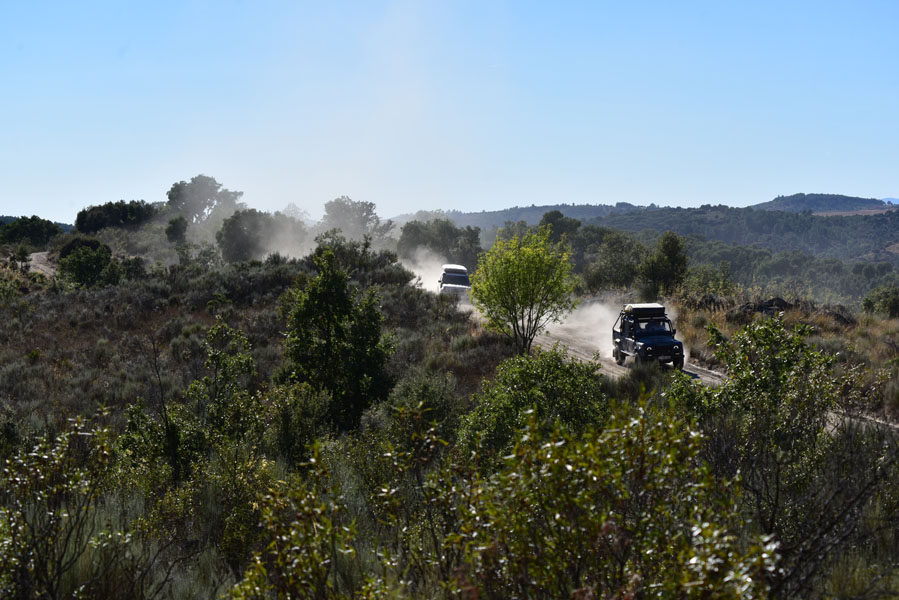
SWEDEN
In Sweden the wild camping laws are similar to those in Norway and are very liberal and welcoming to wild campers. The Right of Public Access (‘Allemansrätt’), or Outdoor Access Rights gives you the right to roam the countryside in Sweden in perfect peace and quiet.When you are in Sweden you have the right to walk, cycle, ride, ski and camp on any land with the exception of private gardens, near a dwelling house or land under cultivation. 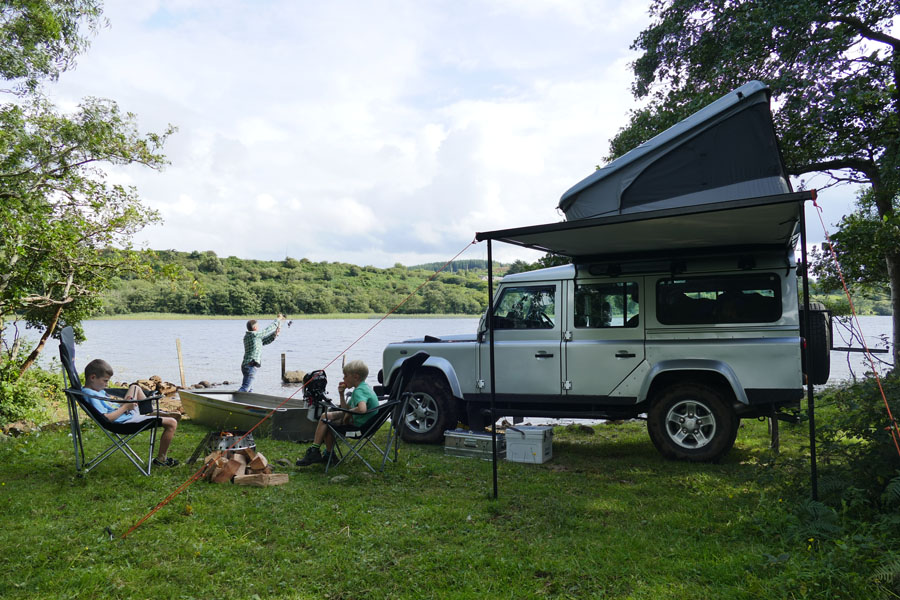 They call it the Freedom to Roam.In Sweden the Right of Public Access is a unique right to roam freely in the countryside but with this right comes responsibilities to respect nature and wildlife and to show consideration for landowners and for other people enjoying the countryside. The Swedish Environmental Protection Agency (EPA) sums up the Right of Public Access in the phrase ‘Don’t disturb – Don’t destroy.’ You may pitch your tent for a night or two in the countryside as long as you don’t disturb the landowner or cause damage to nature
They call it the Freedom to Roam.In Sweden the Right of Public Access is a unique right to roam freely in the countryside but with this right comes responsibilities to respect nature and wildlife and to show consideration for landowners and for other people enjoying the countryside. The Swedish Environmental Protection Agency (EPA) sums up the Right of Public Access in the phrase ‘Don’t disturb – Don’t destroy.’ You may pitch your tent for a night or two in the countryside as long as you don’t disturb the landowner or cause damage to nature
GERMANY & AUSTRIA
Wild camping in Germany is illegal, you can stay at a designated bivouac site for one night but this normally does not allow you to park up with a vehicle. Of course if you ask for permission to camp on private lands well that’s a different story.
CROATIA
Despite people’s perceptions wild camping is not allowed in Croatia and you only should camp in designated camping sites and areas. Camping outside legal campsites is forbidden and you can be penalised for it – currently anyone caught passing a night or two in a vehicle or tent in unregulated and free-from-charge locations, can be fined. This kind of activity is regulated by Croatian Tourism Act issued by Croatian Ministry of Tourism.Tourism is very important in Croatia and for obvious reasons the Government and the locals would prefer if you stayed in registered campsites.
THE BALKANS (IN GENERAL)
The Balkans, or the Balkan Peninsula as it is known covers an area in Eastern and southeastern Europe with a number of borders dividing the region. The area takes its name from the Balkan Mountains that stretches from the Serbian-Bulgarian border to the Black Sea. The region is a four wheel drivers and wild campers paradise with the peninsula making up a combined area of approximately 470,000km squared or 181,000 square miles, making the area just slightly smaller than Spain.
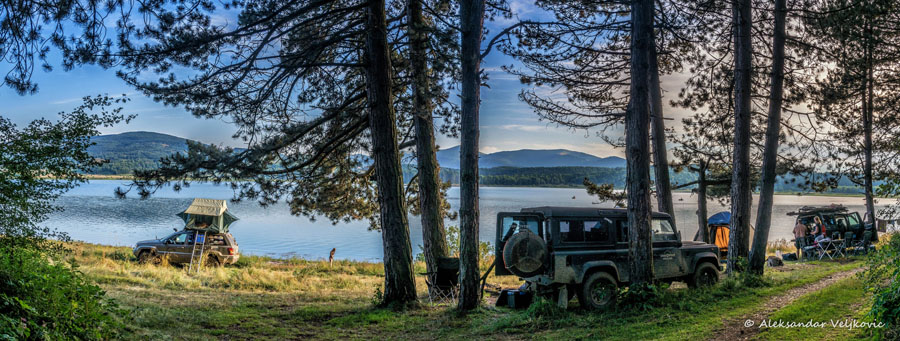
In the Balkans you will experience without much issue wild camping in some spectacular places deep in the wilds and at various altitudes, from forests to open grassland to the top of mountain ranges and along river beds you will be spoiled for choice. Having had a number of contributions from Alek Veljković who is the Overland Expedition Manager for Rustika Travel in recent issues, they have informed us that they are very fortunate to have access to over 150.000 km of tracks throughout the Balkans region, with these tracks offering various levels of difficulties to 4WD enthusiasts.
The Bulgarian National Parks have designated 4wd tracks and it is important to stick to these trails with some written permission required should you wish to decide to tackle some of the non designated tracks especially if you are near some of the borders e.g. with Turkey.
In Bulgaria you are generally not allowed to drive on the beach. Some exceptions are made but generally you should get permission. If you camp on private property you should also always ask for permission.
In Bulgaria the government are currently preparing to introduce a law that covers wild camping highlighting that the local municipalities have to mark free camping areas (bivak areas) by 2021 and wild camping will only be allowed in these areas.
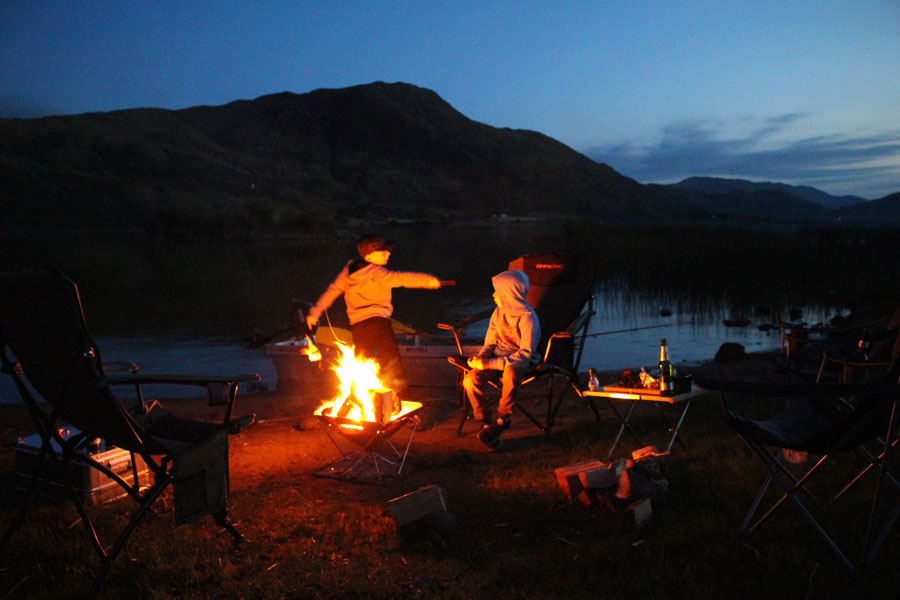
ALBANIA
Another 4WD and campers paradise, Albania is located in the south-western part of the Balkans, bordered by the Adriatic and Ionian Sea. Divided into three regions that include the Coastal, North-eastern and South/Eastern part of the country. In the North Eastern part of Albania the inland region to the north of the Shkumbin River, borders Montenegro, Kosovo and Macedonia where as in the south eastern part of the inland region to the south of the Shkumbin River borders Macedonia and Greece, this region includes the great border lakes, Lake Ohrid and Lake Prespa.The Coastal Region borders both the Adriatic Sea and the Ionian Sea and the country as a whole offers some incredible wild camping locations.
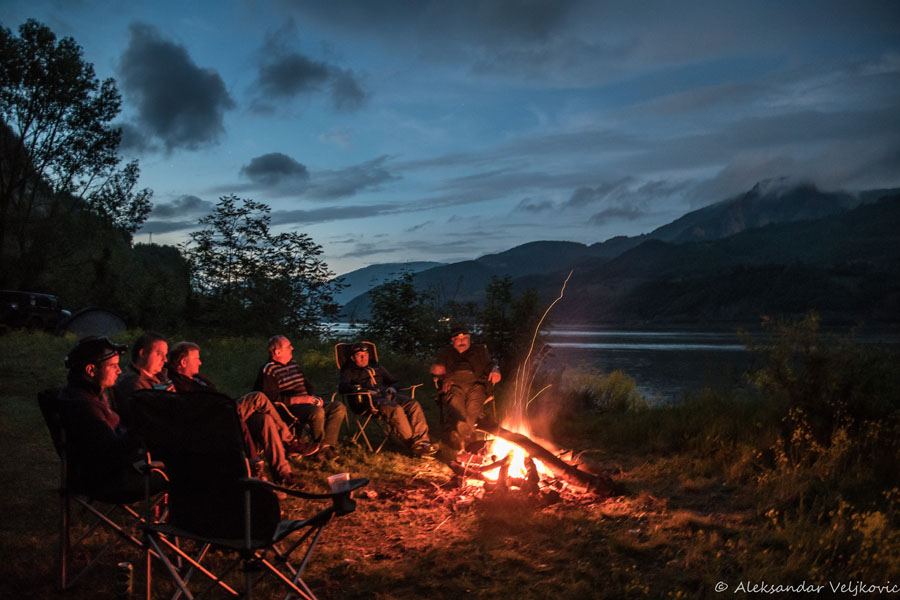
As 4WD owners and people who love exploring remote areas and finding that perfect campsite it is very important that we are seen to protect and respect these laws and their environments and always take out what we take in. Every country throughout Europe and beyond have different laws when it comes to wild camping and driving in remote areas and all of these laws should be respected. As pressure on our landscapes from recreational use continues to increase it is now as important as ever for us all to abide by the Leave No Place principles. It goes without saying that the vast majority of tourers and campers do respect their environment but unfortunately we will also have a minority who do not and give us all a bad name. With that said there is still plenty of scope to find that perfect wild camping location and you could certainly spend well over a lifetime discovering some of them all over Europe.
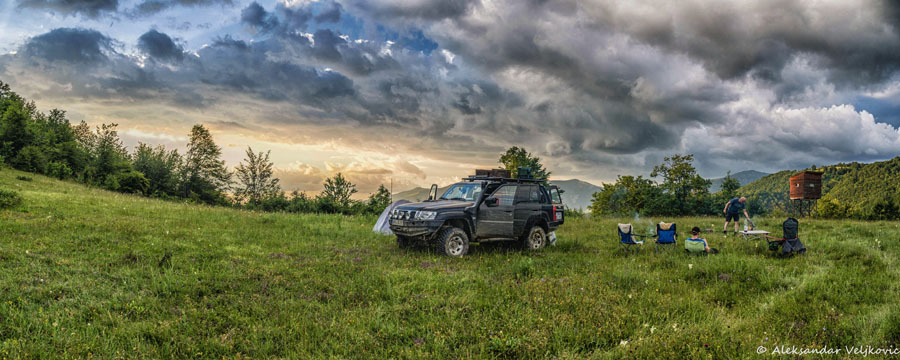

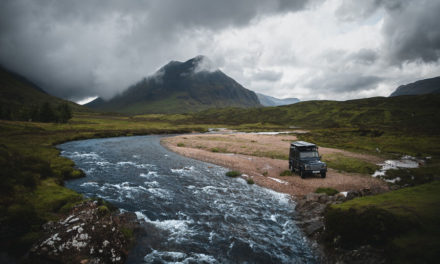
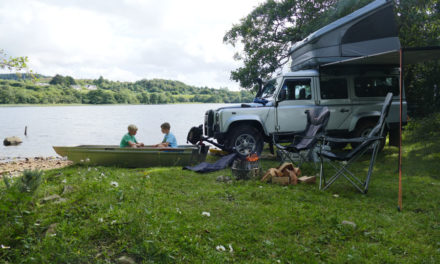
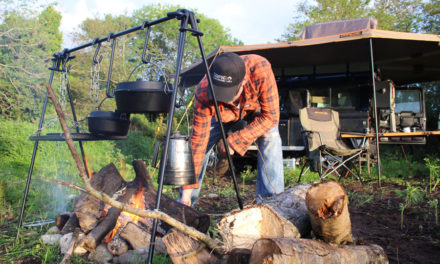
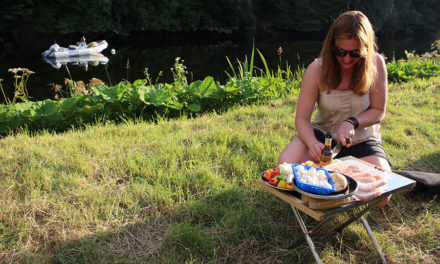
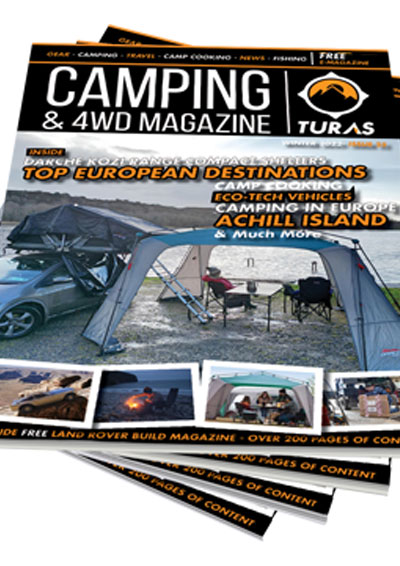
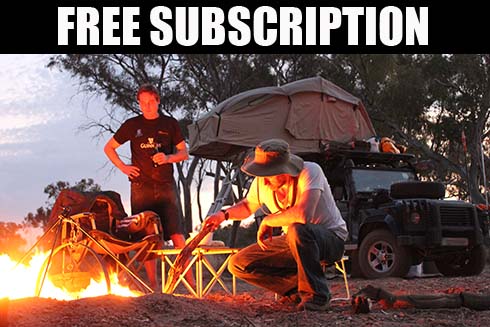
Recent Comments